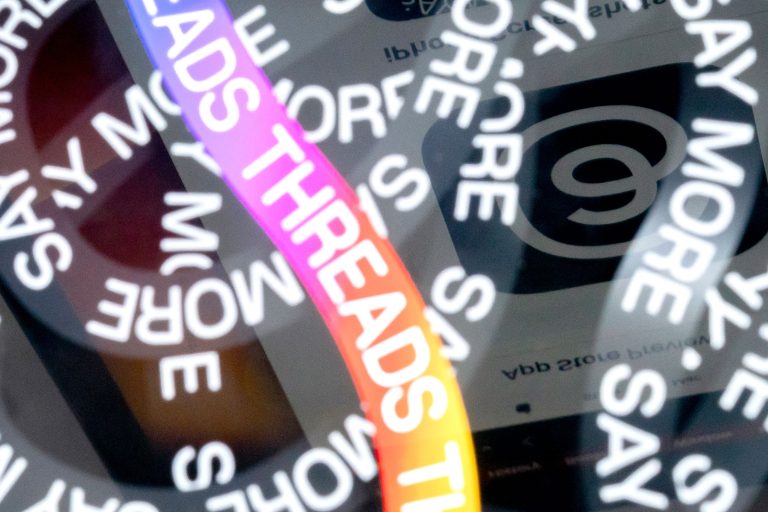Following its release, Meta’s Twitter Rival, Threads went viral in China, ranking fifth for downloads among social media apps on the country’s Apple iOS store this week.
The app is only accessible on the mainland via a virtual private network (VPN), however that doesn’t appear to be stopping many from accessing the app. Communist China has long blocked access to many western apps including Thread’s sibling apps Instagram and Facebook. Threads is only available to users with an Instagram account.
Threads was launched on July 6, and according to Greatfire.org, an organization that tracks online censorship, the domain www.threads.net has been blocked in China since at least July 4.
Technically, the only way users from the mainland can launch a foreign social media app is to develop a locally compliant clone with strict content filters, something LinkedIn attempted with InCareer, however developers abandoned the app earlier this year.
Meta CEO Mark Zuckerberg has been trying to access the mainland market for some time. Facebook was banned in communist China in 2009 and despite efforts, including hosting China’s internet regulator in Facebook headquarters in 2014, he has been unsuccessful.
Success
You are now signed up for our newsletter
Success
Check your email to complete sign up
Some are speculating that it is only a matter of time before the Chinese Communist Party (CCP) takes action and removes the app from Apple’s app store.
Zuckerberg eyes the Chinese market
Thread’s popularity among mainland Chinese comes as Threads founder, Mark Zuckerberg attempts to introduce its virtual reality headsets to the Chinese market.
The Wall Street Journal recently reported that Meta is preparing to re-enter China with its Oculus Quest VR Headset.
In a recent internal meeting, Zuckerberg reportedly said that if Tesla can sell cars in China, and Apple can sell phones, why can’t Meta sell VR headsets?
However, Zuckerberg’s past comments concerning the communist regime may hinder his plans.
In a speech delivered in 2019, Zuckerberg criticized the Bytedance owned TikTok over its censorship practices.
“While our services, like WhatsApp, are used by protesters and activists everywhere due to strong encryption and privacy protections, on TikTok, the Chinese app growing quickly around the world, mentions of these protests are censored, even in the U.S.,” Zuckerberg said at the time.
“China is building its own internet focused on very different values, and is now exporting their vision of the internet to other countries. Until recently, the internet in almost every country outside China has been defined by American platforms with strong free expression values. There’s no guarantee these values will win out,” he added.
READ MORE:
- Comedian Uncle Roger Banned From Chinese Social MEdia Following Joke About Beijing
- China Censors Finance Influencers While Stock Market Hurts
- ‘China Will Have Very Strong AI Capability’: Musk

Significant political pressure
If Zuckerberg successfully launches his VR headsets in China it is likely that he will face intense scrutiny at home as tensions rise between the world’s two largest economies.
The challenge facing Zuckerberg is balancing China’s censorship demands with expectations from a growing chorus of concerned politicians.
Just like Apple’s Tim Cook was grilled by lawmakers over Apple’s decisions to remove apps from its app store at the behest of the Chinese communist government, Zuckerberg will also most likely face inquiries over his intended foray into the Chinese market.
There is precedent of a non-Chinese company successfully launching hardware, as opposed to an app or software, in China.
The Nintendo Switch was successfully launched in China in 2019 through a partnership with Chinese internet giant Tencent.
However, users do not receive an authentic Nintendo experience as many of the games available for the device remain banned in China due to the country’s stringent content approval process.
In addition to regulatory hoops Zuckerberg will need to jump through, direct competition from mainland technology developers threaten Zuckerberg’s ambitions.
The Chinese virtual and augmented reality industry is still young however it did manage to ship 1 million units last year, while Zuckerberg didn’t ship a single unit.
Currently the Chinese market is dominated by Pico, a VR company that was acquired by ByteDance in 2021. The company currently enjoys a 43 percent share of China’s XR market, after it introduced a product last September that many believe was directly aimed at competing with Zuckerberg’s head seats.














